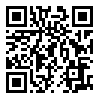With increasing demand for services, in the fifth-generation (5G), some locally data transmission methods based on efficient energy are proposed. One of these methods is device-to-device communication (D2D), which has been proposed as a promising method to improve the capacity and reduce the power consumption in the wireless networks. D2D communications, to nearby users, allows the data to be transmitted directly, without using the base station. On the other hand, the auxiliary relay can be used in D2D communications. Selecting the proper relay is one of the important to maximize the network throughput. This choice can be based on physical conditions, the amount of energy and social relations. In this paper, a new algorithm is expressed for selecting the optimal relay based on these three parameters, and the effect of each one has been studied. To find the optimal power allocation for relay and D2D users, an optimization problem with the goal of maximizing the energy efficiency is regulated and solved. Simulation results show that the relay selection significantly increases the energy efficiency of the network based on the combination of three parameters social relations, energy harvesting, and data rate.
Received: 2018/10/11 | Accepted: 2019/05/31 | Published: 2020/03/17
| Rights and permissions | |
 |
This Journal is an open access Journal Licensed under the Creative Commons Attribution-NonCommercial 4.0 International License. (CC BY NC 4.0) |



